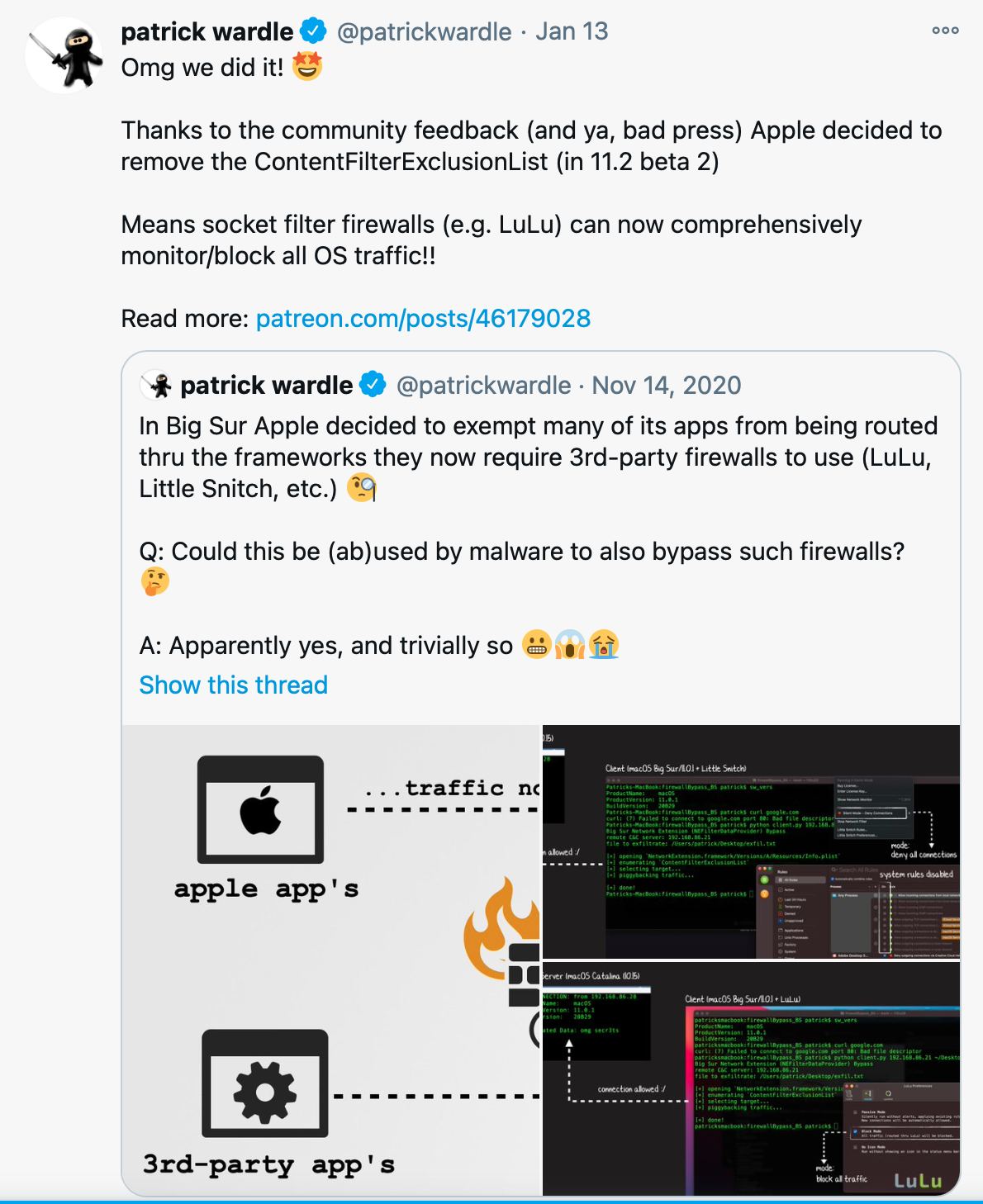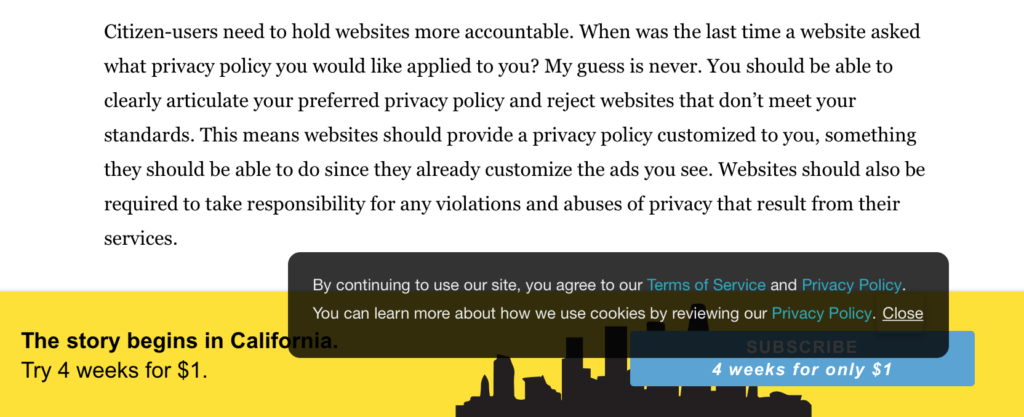Bad news: your car is a spy. Every major car brand failed a recent privacy and security test from Mozilla. You’re probably driving around in a “privacy nightmare” that may collect information as sensitive as your race, health status, and sexual activity.
Source: Mozilla Report Finds That New Cars Give Out Lots of Your Info
This is not just about selling ads this time. This is about actual surveillance and — eventually — control. The governments of the world will make this a requirement, and make circumvention of it as illegal as copyright infringement.
In the US, the government will throw up its hands and say, “Don’t blame us! It’s the “free” market, and this must be what people want!” Meanwhile all the automakers will collude to do it, so that you can’t buy a car without it. Then they will collect the data in their “private,” “secure” servers, and either let the NSA have it, or not resist when they inevitably tap into it.
Some people will think this is a good thing, because then we could, say, throw literally everyone who was at J6 in prison! But then a conservative government gets thrust into power, and now they can go after everyone who was present at a BLM protest that turned violent (but I repeat myself). It is an evergreen human truth: Whatever power “we” let “them” have will eventually be used against “us.”



